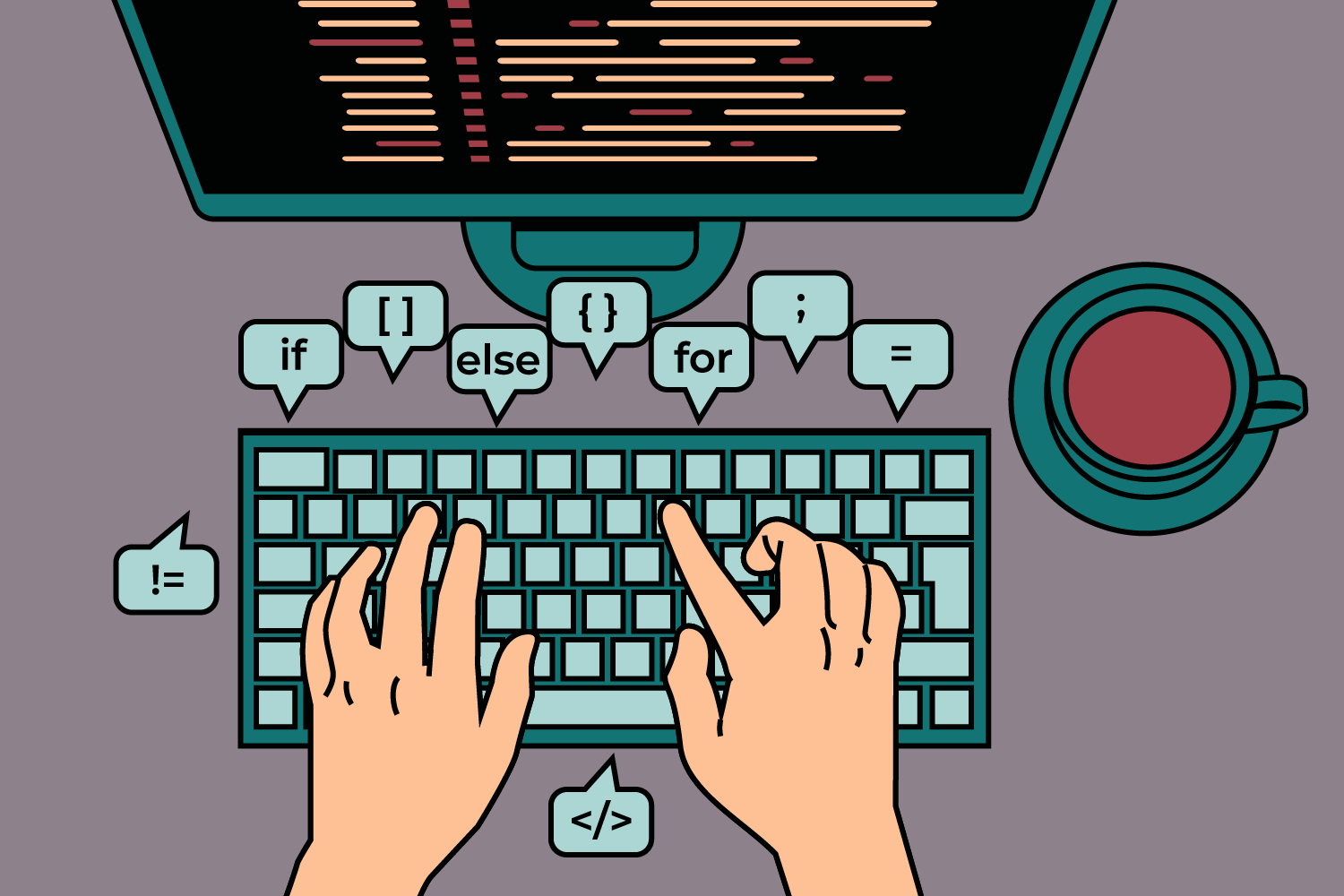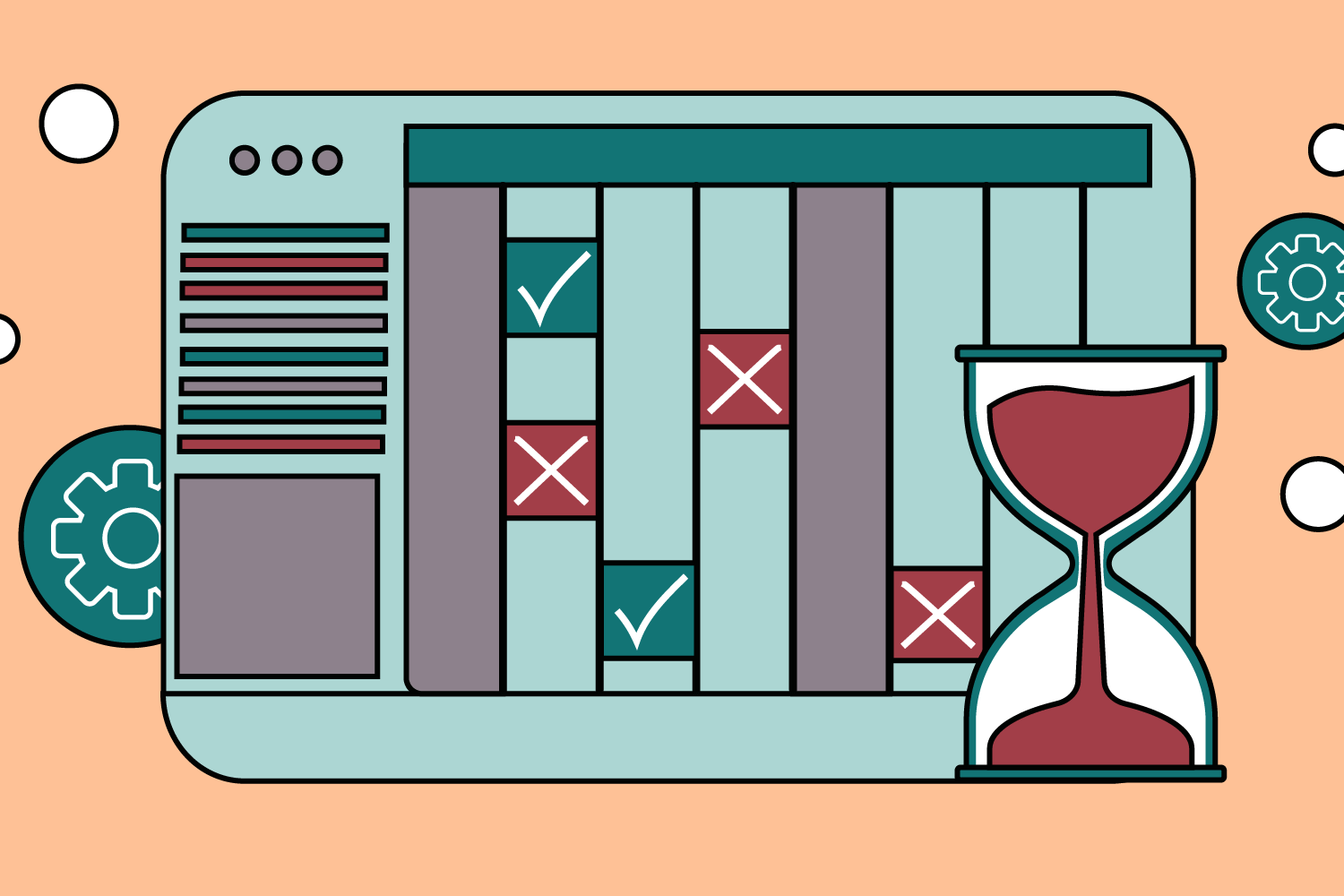This is an integral part of any good problem solving approach and is something every developer should be able to do on their own. If you perhaps don’t have it in you naturally, it will develop gradually with experience. One way or the other, you need to be able to make abstracts less abstract in order to solve them.
In the fast-paced and ever-evolving world of software development, developers find themselves in the midst of an unrelenting whirlwind of complex tasks and tight deadlines, all while grappling with the constant changes of emerging technologies.
Beneath this exterior lies a silent and subtle foe that can stealthily sabotage a developer’s productivity and overall well-being. The phenomenon of cognitive overload in coding is not talked about enough but experts find it has a profound influence on the lives of developers.
It is possible to overcome this challenge using different strategies and even tools. However, the main step is to raise awareness about the issue, which still seems to be the main obstacle no one talks about.
Cognitive overload in coding
In programming, cognitive overload occurs when developers face an overwhelming amount of information and tasks that strain their working memory and hinder their ability to focus and make decisions. This state can arise from multitasking, switching context between projects, and grappling with information overload due to the abundance of resources and documentation available.
Each time a developer switches from one task to another, there is a “switching cost” – a mental overhead involved in disengaging from one task and re-engaging with another. This constant back-and-forth taxes the working memory and can diminish overall productivity.
Additionally, when developers engage in multitasking, the quality of their work may suffer. They might not give each task the attention it deserves, leading to more errors and bugs. The need to context-switch also interrupts the flow of deep focus, making it challenging to maintain the level of concentration required for complex coding tasks.
Our Mobile Developer Zvonimir states that the main key for tackling intricate and multi-faceted tasks involves breaking them down into smaller segments.
My preferable way of approaching complex and multilayered tasks is to dissect them into smaller chunks or milestones. This can help make the often abstract issue more concrete, which ultimately makes it more understandable and easier to solve. It also helps to keep your focus on the right track and to avoid the stress of being overwhelmed with different tasks and priorities at the same time.
Zvonimir Tančinec, Mobile Developer

Zvonimir emphasises that this is “an integral part of any good problem solving approach and is something every developer should be able to do on their own. If you perhaps don’t have it in you naturally, it will develop gradually with experience. One way or the other, you need to be able to make abstracts less abstract in order to solve them.”
Finding balance and focus
While multitasking may seem unavoidable in the dynamic software development environment, there are strategies to mitigate its negative effects on cognitive overload.
Prioritisation
Developers need to be encouraged to prioritise tasks based on importance and deadlines. Breaking down projects into smaller, manageable chunks and focusing on them one at a time can alleviate cognitive strain.
Time-boxing
Implement time-boxing techniques to allocate dedicated time blocks for specific tasks. By committing to work on a single task during each time box, developers can avoid constant context switching.
Collaborative approach
Promote collaboration and effective communication within the development team. Distributing workload based on expertise and strengths can reduce the need for developers to handle multiple tasks simultaneously.
Regular breaks
Take regular breaks during intense coding sessions. Short breaks allow the brain to refresh and re-energize, enhancing overall cognitive performance.
Identifying the warning signs of cognitive overload
Recognizing the warning signs of cognitive overload is crucial for developers to address the issue before it significantly impacts their productivity and well-being.

Here are some key indicators that developers should be mindful of in their coding journey:
Increased forgetfulness
Forgetting essential details or losing track of code logic that was clear before might indicate cognitive overload. Difficulty in recalling information, especially related to ongoing projects, can be a red flag.
Lack of focus
Struggling to maintain focus during coding sessions and finding it hard to concentrate on specific tasks are signs of cognitive overload. Developers may find themselves frequently distracted or unable to delve deeply into complex coding challenges.
Sluggish problem-solving
Cognitive overload can slow down the problem-solving process. If developers notice a decline in their ability to devise efficient solutions or find themselves stuck on seemingly routine coding problems, it might be time to assess cognitive load.
Increased errors and bugs
When cognitive resources are strained, developers may make more mistakes, leading to an increase in errors and bugs in their code. Frequent debugging or code refactoring can be indicative of cognitive overload.
Heightened stress and fatigue
Experiencing persistent stress, mental fatigue, and burnout are common signs of cognitive overload. Developers may feel drained after relatively short coding sessions, and this can negatively impact their overall performance.
Difficulty learning new concepts
When the cognitive load is already high, taking on new concepts or technologies can become overwhelming. Struggling to grasp new ideas or integrating them into existing code can be a warning sign.
Decreased creativity
Cognitive overload can hamper creative thinking and innovation. Developers may find it challenging to come up with elegant solutions or innovative approaches to coding problems.
Ineffective time management
Difficulty managing time and sticking to project timelines can indicate cognitive overload. As the brain becomes overwhelmed, developers may struggle to prioritize tasks effectively and meet deadlines.
Practical strategies for dealing with cognitive overload
Cognitive overload can be conquered through the implementation of practical strategies that promote efficiency, focus, and collaboration in the software development process. Here are some effective approaches that developers can employ to break the cognitive overload barrier.
Streamlining the coding process
Streamlining the coding process involves organizing and simplifying complex tasks to make them more manageable. Two essential practices that aid in achieving this goal are:
1. Adopting modular coding practices
Modular coding involves breaking down complex software projects into smaller, independent modules or components. Each module handles a specific functionality, making the codebase more organized and easier to comprehend. By dividing the work into manageable pieces, developers can focus on one module at a time, reducing cognitive overload caused by dealing with the entire codebase simultaneously. Additionally, modular coding enhances code reusability and maintainability, facilitating collaboration among team members.
2. The power of code reviews and pair programming
Code reviews and pair programming are valuable practices that foster collaboration and knowledge sharing within development teams. Code reviews involve having other team members examine a developer’s code for errors, adherence to coding standards, and potential improvements. This process not only helps identify and correct issues but also allows developers to learn from each other’s coding styles and techniques, reducing individual cognitive load. Pair programming, where two developers work together on the same task, promotes real-time problem-solving and knowledge exchange, leading to more efficient and well-structured solutions.
Time management techniques to enhance focus and concentration
Time management plays a crucial role in mitigating cognitive overload and maintaining developer productivity. A few time management techniques that developers can adopt include:
The pomodoro technique
The Pomodoro Technique involves breaking work into focused intervals (typically 25 minutes), followed by short breaks. During each interval, developers concentrate solely on the task at hand, minimizing distractions and cognitive overload. The regular breaks allow the brain to recharge, improving focus and preventing burnout.

Time blocking
Time blocking entails setting aside specific time slots for dedicated work on particular tasks or projects. By allocating predetermined periods for focused coding, developers can avoid context switching and optimize their cognitive resources for each task. This method also helps developers prioritize work and maintain a clear sense of direction.
Conclusion
In the dynamic world of software development, mastering the intricacies of coding is just one piece of the puzzle. Understanding and tackling cognitive overload is equally vital to thriving as a developer. By recognizing the signs, employing effective strategies, and fostering a supportive work environment, developers can rise above cognitive overload and pave the way for unparalleled coding excellence.
Breaking the cognitive overload barrier is achievable through practical strategies that empower developers to work more efficiently and collaboratively. Streamlining the coding process with modular coding practices, leveraging the benefits of code reviews and pair programming, and adopting effective time management techniques can lead to heightened focus, reduced cognitive load, and ultimately, improved coding excellence.
